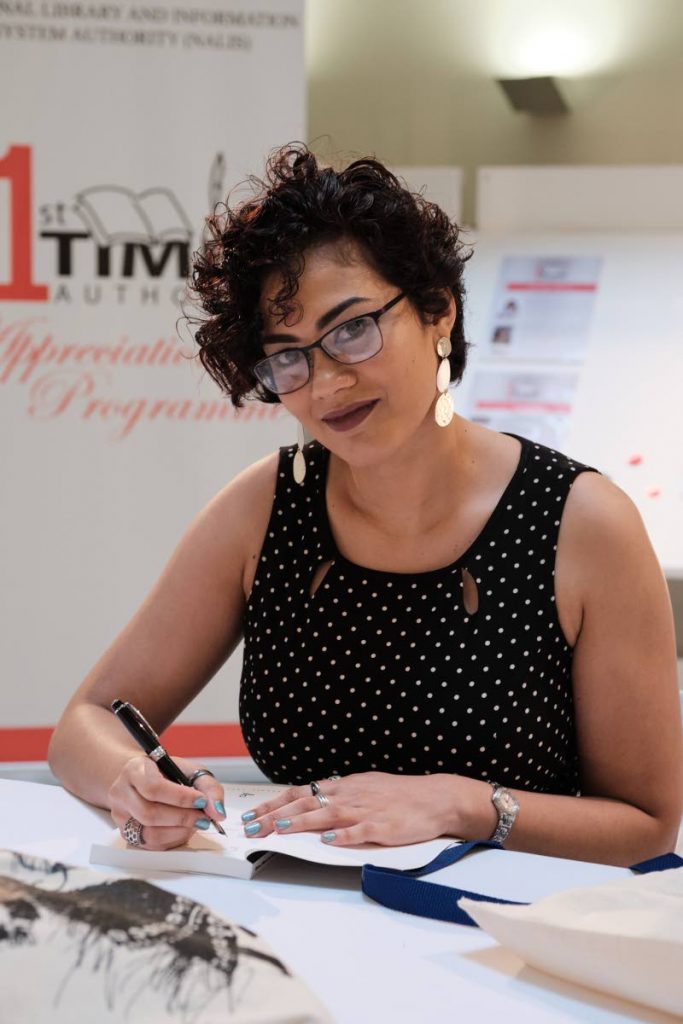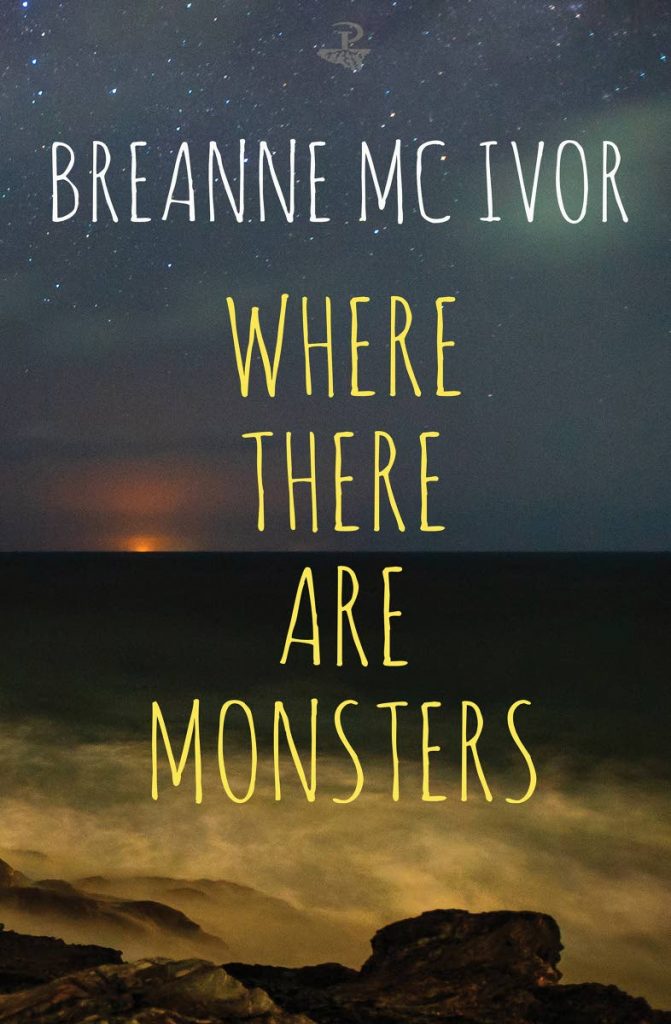Paradise lost

A MONSTER, wrote the American novelist Colson Whitehead, is a person who has stopped pretending. Breanne Mc Ivor’s Where There Are Monsters is a book that understands how the ordinary can harbour the extraordinary; how TT has long stopped pretending to be paradise and is now something else.
“You come back and you are an adult and you are dealing with the reality of this country anew,” Mc Ivor says of the time she returned to Trinidad after years studying abroad.
She was 22 and began to write what she saw around her. The result, many years later, was her debut short-story collection, launched earlier this year at the NGC Bocas Lit Fest. She’s since read at many events, including Carifesta XIV, and will make appearances at the Brooklyn Caribbean Literary Festival in September and the Miami Book Fair in November.
“It is still surreal,” she says.
Mc Ivor’s turn to the written word has been long in coming. Born and raised in west Trinidad, she attended St Joseph’s Convent. As a child, she developed a penchant for stories. She would fill entire copybooks, paste specially-printed covers on them, and give them to eager classmates to read.
“Those stories were very character-driven,” she recalls. “A lot of relationships and romance. In fact, thinking about it as I talk to you, they also had vestiges of crime writing – not too different from what I’m doing now.”
Even as a child, what was happening around her was creeping past the gates of St Joseph’s and into her words.
“I remember a boy from the school next door being kidnapped,” she says. “That criminal side of society was in my psyche even then.”

Her sensitivity was a clue to her destiny. As was a note in her form six year-book. It declared her future was to become an author, whether of poetry or fiction.
After St Joseph’s, Mc Ivor studied English at the universities of Cambridge and Edinburgh. At Cambridge, she fell in with poets in her college, at one stage becoming the co-president of the Girton Poetry Group. There she wrote, longingly of home and a mango tree in her family’s yard, declaring, “Although I have long been away, I can still see/ The canopy of green fingers tickling the clouds.”
But then fiction cast a spell on her, providing a nuanced way of seeing the world – its light and dark, its pathos and comedy. She read Joseph Heller’s Catch-22, VS Naipaul’s Miguel Street, Edwidge Danticat’s The Dew Breaker. More recently, she vouches for Madeline Miller’s The Song of Achilles and another book by the same author called Circe, currently being developed into an HBO series.
In the years since her copybooks at school, Mc Ivor has worked steadily at honing her craft, attending workshops at the NCG Bocas Lit Fest, and organising a reading club with her brother and writing partner, Brandon, called The People’s Republic of Writing (PROW). Along the way to her first book, she has been shortlisted for several prizes, including the Commonwealth Short Story Prize and the Derek Walcott Writing Prize. In 2015, she won The Caribbean Writer’s David Hough Literary Prize.
What is most striking about Mc Ivor’s collection, which is published by Peepal Tree Press of Leeds, is how deeply Trinidadian it is: in its settings, its characters, its use of folklore, its social concerns, its anatomisation of class, its enactment of social rhythms, its understanding of local family dynamics, its proximity to the interplay between masquerade and reality, its familiarity with the multitudinous impact of crime, its accumulation of telling and vivid detail.
“I love something that grips you, that makes you feel,” Mc Ivor says. “The best books build characters that stay with you long after you put the book down.”
True to this standard, when you finish Where There Are Monsters, it is the character of Trinidad that lingers most.


Comments
"Paradise lost"